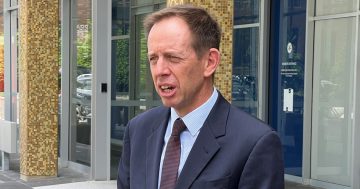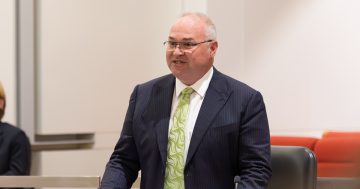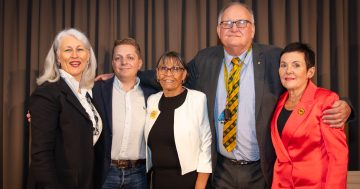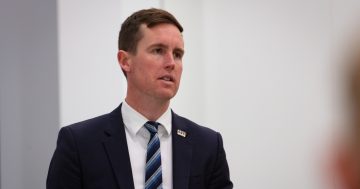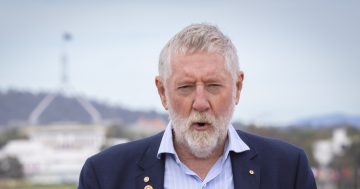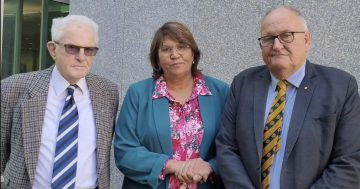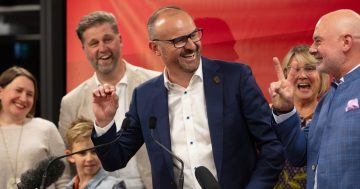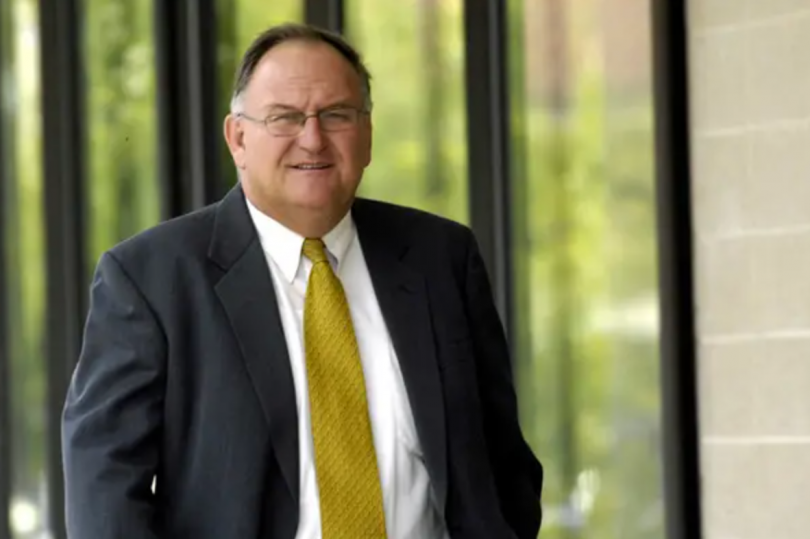
Former MLA Bill Stefaniak intends to stand for the Assembly in October. Photo: File.
They say the souffle never rises twice, but Bill Stefaniak is hoping to defy the received wisdom when he stands for the Legislative Assembly this year with the newly formed Belco Party.
Bill had a lengthy run in the Assembly as a Liberal MLA for Ginninderra stretching from 1995 to 2008, including a stint as Opposition leader. In the intervening years, he’s been the appeal president of the ACT Civil and Administrative Tribunal and worked with the Administrative Appeals Tribunal in Sydney until recently.
So why the change?
“My wife was getting sick of me and I’m not a gardener. So she suddenly became very supportive of me having another crack at it”, he chuckles.
But why not the Liberals? Why span two decades in the service of the ACT’s perennial opposition and then run with another party?
“It’s a new Assembly and they all have their race to run. The major parties had preselected and the Liberals have changed since I was in the Assembly”, he says.
Bill quit the party in 2008 to go onto the bench. He says the Belco Party will give him the flexibility to serve again while bringing a diverse life experience to bear, ranging from crown prosecutor, country solicitor and army officer to part time TAFE teacher.
His own political stripes haven’t changed and while he’s likely to agree with a fair bit of the Liberals agenda, cooperation is by no means a done deal, although he’s offering a few ministerial training sessions if the Liberals do win in October.
It’s also clear he sees room in the centre that’s underutilised by the Liberal Party.
“Very average people in the suburbs are Liberal voters, Mr and Mrs Isabella Plains and Mr and Mrs Spence. I’ve always thought that right-wing Labor voter attitudes are much more conservative than the ALP represents”, he says.
“My electorate has large numbers of people who are very average tradies, teachers, policemen and women, ordinary people from a traditionally more conservative Labor background. The ALP has abandoned them, it’s a trendy party of environmentalists, academics and public servants”.
Bill thinks most people would know what his views are, although he checks himself, reflecting that it’s been a while.
“I’m a fairly practical person, not a mad ideologue”, he says. “In the ACT it’s about local government – rates, roads and rubbish, schools and hospitals, good courts and policing. It’s not rocket science and there’s not much ideology in that.
“I’ve never been an economic rationalist. I make no bones about being a social conservative but I’m not wedded to privatisation for the sake of it”.
There’s potential for one or more independents to hold the balance of power, something Bill thinks works well for the ACT.
“When you’ve got a Green Labor government voting block, that makes it hard for anyone else. I think there’s a place for competent independents to hold the balance of power, that’s worked very well in the past”.
He’s harking back to his own days working with independent Michael Moore, who held the health portfolio in the Carnell government. He says Moore (who called him NIMBY, while he referred to Moore as Fourby), helped secure the Belconnen Pool and was a strong supporter of the Stefaniak bail law reforms “despite disagreeing fundamentally with a lot of my law and order policies.
“Even in the chaotic first assembly with 17 members and six groups, commonsense often prevailed and you could get some good stuff up and running. I do think the current government has its priorities wrong. The budget has blown out to buggery”, Bill says, citing “vanity projects” like light rail and lack of ministerial access.
The Belco Party has broad outlines for policies, encompassing planning consultation (for example, building inspectors on rotation), a moratorium on stage II of light rail until there is “a proper study of the best way forward and how you justify the expenditure”, a reversal of drug laws that he says were “perfectly good in the past and are now a dog’s breakfast”, and residential tenancy laws.
Bill is also keen on reversing the greyhound ban, “a great pastime for good old working class Australians”, he believes.
“We will get more policies out, we can’t be as detailed as Labor and Liberals because they’ve got greater resources”, he says. “But when you’re criticising something, you need to make helpful suggestions on how to rectify the situation, not just harp and criticise for the sake of it”.













